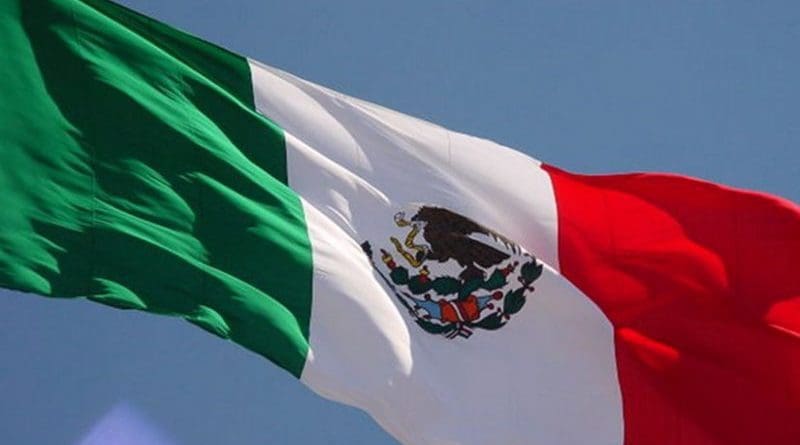Mexico: Corruption And Impunity Prevalent At All Levels Of Government
By Orsetta Bellani
The film “The Perfect Dictatorship”, by Mexican director Luis Estrada, is a satire of a country overrun by corruption. “In this story, all names are fictitious. The facts are suspiciously true. Any resemblance or similarity with reality is purely coincidental,” Estrada announced at the beginning of the film.
“The Perfect Dictatorship”, filmed in 2014, tells the story of Mexico governed by the Institutional Revolutionary Party (PRI), where criminal organizations are working as gunmen for politicians and those who dare to report them are killed. The television is the boss, able to manipulate public opinion to the point of imposing and toppling presidents. The film’s title is taken from a phrase used by Peruvian writer Mario Vargas Llosa to describe the successive PRI governments, a party which has held power for over 60 years.
This is Mexico, where, according to an investigation by British newspaper The Guardian, during the election campaign of 2012 the Televisa television network — which reaches 70 percent of the audience in the country, one of the largest media concentrations in the world — turned little known PRI candidate Enrique Peña Nieto into president after payment of millions of dollars. A team of journalists led by Carmen Aristegui, who worked for Noticias MVS radio station, was fired unexpectedly in March after revealing that the residence where Peña Nieto lives with his family is owned by the Higa Group, company of one of president’s friend which the government favors by granting contracts for the construction of public works.
The Mexican people are aware of the corruption problem that exists in the country. According to the Transparency International Corruption Perception Index 2014, Mexico is ranked 103 of 175 countries —with a score of 35 in a scale that ranges form 0 (high corruption) to 100 (low corruption)—, the lowest among the Organization for Economic Co-operation and Development (OECD) nations, while Brazil, Mexico’s main economic competitor in the region, is ranked 69th.
According to the World Bank, corruption in Mexico represents 9 percent of gross domestic product (GDP) and accounts for 80 percent of taxes collected at the federal level. Corruption also goes hand in hand with the violation of human rights and violence. This year more than 15,000 people have been killed in Mexico. Moreover, the states of Zacatecas and Baja California experienced the largest increase at 100 percent more murders. The impunity rate reaches 98 percent.
Revelations about Ayotzinapa
The Ayotzinapa case, related to the disappearance of 43 students, showed the international public the high corruption and impunity levels that exist in Mexico and the government’s lack of commitment to human rights.
In January 2015, the Attorney General’s Office announced what it stated was the “real story” regarding the case: the night of Sept. 26, 2014, the Municipal Police kidnapped 43 students in Ayotzinapa, in the state of Guerrero, and then delivered them to the Guerreros Unidos (United Warriors) cartel, which took them to the Cocula landfill to kill and burn them. However, in early September, the members of the Interdisciplinary Group of Independent Experts (GIEI) — appointed by the Inter-American Commission on Human Rights (IACHR) at the request of the Mexican government to investigate the case and make recommendations to the authorities — reached the conclusion based on scientific evidence that the students were not burned in the Cocula landfill. They also showed how the Attorney General’s Office omitted some events, thus covering up the involvement of the Federal Police and the Army.
“We have not made an assessment of the intention [of the authorities], what we said is that there is a complete omission of certain facts, even though they were in the student teachers statements, and we informed the Attorney General’s Office. There are people who are responsible for these omissions. It is not our job to investigate, but someone had to do so”, said Carlos Beristain, a member of GIEI, to Latinamerica Press. “Our work is an opportunity for the Mexican state and we believe it is a contribution to the fight against impunity in the country. It is an important tool not only for this case, but it offers general recommendations for the other cases of forced disappearances in the country, and we hope it will be used in practice.”
Commission against impunity
On Sept. 24, when the parents of the Ayotzinapa victims met with Peña Nieto, they demanded the creation of an international commission against impunity in Mexico. The idea was taken from Guatemala, where the UN-supported International Commission Against Impunity in Guatemala (CICIG) uncovered a vast corruption network known as “La Línea” (The Line) that was engaged in tax fraud. This forced President Otto Perez Molina and Vice President Roxanna Baldetti to resign. Both, along with a group of senior government officials, are imprisoned and awaiting trial.
In October, a group of Mexican civil society organizations presented to the UN High Commissioner for Human Rights, Zeid Ra’ad Al Hussein, the proposal to create a similar commission in Mexico. However, for this to happen it must be approved by the Mexican state.
“It is increasingly clear that the Mexican government is not only inept and incapable of imparting justice, but it has also been captured by organized crime at all levels, from the Presidency of the Republic to the Municipal Police,” said Federico Navarrete, professor at the National Autonomous University of Mexico (UNAM) and promoter of the proposal, to Latinamerica Press.
“It is necessary the international collaboration to rebuild governance in Mexico. Without outside help it will be very difficult for the Mexican state to change, to suddenly do what it never really did. I think the only hope would be a social movement that demand a thorough examination of the country’s institutions and international pressure from Mexico’s allies, because a corrupt system like this will not accept it,” said Navarrete.

